THE REGENT DISASTER: MUD/LANDSLIDE
REGENT DISASTER: FOREBODINGS OF DR. BANYA AND THE ENGINEERS.
By Andrew Keili
One thing you cannot fault my dear Uncle "Puawui" on is his brains and his passion for what he believes in. The good old Doctor, now in the twilight years of his eventful life also happens to be an avid environmentalist who is Honorary President of the Conservation Society of Sierra Leone. The Sierra Leone Institution of Engineers (SLIE), of which yours truly is a proud member has been on the same page with the good doctor to warn about impending disasters of the kind we have just experienced at Regent.
I will digress a bit and come back to Dr. Banya and the Engineers.
It is a well known fact that Sierra Leone faces many natural hazards including meteorological hazards. In addition to this there are many manmade disasters caused by deforestation, coastal sand mining, artisanal aggregate mining and other factors. Although most of the urban development is on the flat land adjacent to the coast, increasingly urban developments are spreading up the hillsides due to a lack of land. A large number of households–both rich and poor-have built houses on the steep hillsides on the edge of the city, thus increasing their vulnerability to landslides caused by deforestation and soil erosion.
A death toll of over 300 and still rising, with over 2000 people affected in the current disaster is much bigger that the normal annual disasters we are used to. Hundreds more may be still lying under the rubble. This one is indeed of epic proportions.
Control of illegal buildings and deforestation for various human needs has proved difficult. Despite the best efforts of regulatory institutions, they are hampered by several issues including paucity of funds, capacity problems and poor enforcement of apt regulations.
With the current disaster it would appear that there were no warnings in place and affected people were caught totally unawares. Despite the disasters we have annually, Sierra Leone unlike other countries does not have an autonomous Disaster Management unit/agency. What exists is a Disaster Management Department within the Office of National Security (ONS), with the mandate to coordinate disaster related activities. The Department is enmeshed in the budgetary limitations of the ONS. and as such its activities are not adequately funded.
Early warning systems (EWS) allow at-risk populations to be forewarned to take both preparatory and preventive measures before hazards strike. However the Meteorological Department established in 1961 as an offshoot of the British West African Meteorological Services that was established in 1923 is in a shambles and is largely ineffective in this area. The responsibilities of the department which include " the safety and well being of citizens and their protection against severe weather situations and devastation from natural disasters" is largely ignored. Despite the assistance given by various organisations like the UNDP in terms of automatic weather stations and observation data management systems there are still a considerable number of lapses in the Department. This has now been converted to an Agency as per the recently enacted Sierra Leone Meteorological Agency Act, 2017 which should ostensibly make it more effective-we await the results.
Most of the Ministries Departments and Agencies concerned with lands, environment and building permits are grossly underfunded, inefficient, lack enforcement capability and are sometimes ridden with corruption. Laws are hardly enforced and there is often a brazen disregard the rule of law by the public-both rich and poor.
Kudos to the many groups that are helping out in the current disaster. The ONS, other Government Agencies, International organisations, NGOs, various community organisations are all putting their hands to the wheel to ameliorate the suffering of affected persons. The Government has been very proactive and we have seen the President make a statement and various Ministers and their Ministries in the forefront of this fight. Opposition politicians have also chipped in. There is however a sense of déjà vu as we go through this ritual every time there is a disaster- and now it seems like it is every year.
As laudable as the disaster response may be it behooves us as a country to also identify, assess and monitor disaster risks , enhance early warning and use knowledge, innovation and education to build a culture of safety and resilience at all levels. We have a fairly good knowledge of the hazards and the physical, social, economic and environmental vulnerabilities to disasters faced and of the ways in which hazards and vulnerabilities are changing in the short and long term.
We cannot say we have not been warned about what may arise if we do not forestall such impending problems.
In an article in the Sierra Leone Telegraph on May 28, 2014 titled "The tragedy of Freetown's Peninsular forests" the erudite Dr Sama Banya wrote:
" On the peninsular road, my heart bled as I looked up at Mount Sugar Loaf and the chain of mountains of the Western area Peninsular, overlooking Freetown and the Atlantic Ocean. The mountains have been completely rid of every forest cover and vegetation, leaving them bare and ugly. This unfortunate and sad condition has been caused by human activity, including deliberate clearing for the expansion of human settlements. Everywhere, buildings are being erected further up towards the top of the mountain range.
During my twenty-five years with the Conservation Society, we and other groups engaged in the preservation of our biodiversity, devoting much time creating public awareness through advocacy and education. This was aimed at nature conservation and the preservation of our rich fauna and wildlife. It would now appear as if we had been preaching to deaf ears........The government................must now make a determined effort to take strong action. They must halt any further extension of human settlements up the mountain slopes. Also, they must seek funding and contract out the task of comprehensive tree planting on the mountain tops and the entire area."
I have also relayed in this column at least on two occasions the forebodings of the Sierra Leone Institution of Engineers (SLIE). In their Press release titled "Uncontrolled development activities within the city", the release stated:
"Uncontrolled development activities within the City, along the coast lines, along the hillsides and along the rights of way are causing serious environmental problems of deforestation with associated consequences related to health, loss of lives. and property............ It is very disturbing to know that most of these buildings are constructed without proper planning permits. We are therefore recommending that:
• A temporary ban is imposed on private development along the hillsides......along the sea-face of the coastline, and along the corridors of roads that are being investigated for construction and future development
• A broad based committee be formed comprising representatives from the Ministries of Works, Housing and Infrastructure, Lands Country Planning and the Environment, the Sierra Leone Roads Authority and representatives from SLRA, PERC and SLIE to deliberate and advise in this area.
• That the statutory laws of the land should be fully invoked to correct and arrest this chaotic situation.
SLIE has also been very vocal on the issue of building permits. In a letter to government, SLIE also called for enforcement of the building Laws and the need to address uncontrolled development of infrastructure in the city as well as malpractices in the profession. SLIE noted that "sub-standard infrastructural buildings and other projects are going on in the country noting that such projects, particularly housing, are being implemented without the involvement of engineers".
From the look of things Dr Banya's forebodings and those of SLIE may well be "voices crying in the wilderness".
Surely something must be done about this state of affairs. A friend of mine wrote on social media something that I thought was very apt:
"The most important lesson today is that a country cannot live by politics and religious wailing alone. Those who have been trained to save us from these self - inflicted catastrophes (planners, engineers, scientists, health care professionals, etc) have little say or value in this society. There is a near complete absence of modern best practices in the most basic aspects of how a city of this size and topology should be planned, built and managed. The impunity of our crimes against our beautiful natural environment in cutting down watershed sustaining ancient forests on our mountains so we could build private concrete coliseums would be deserving of a biblical plague were it not for the fact that it's always the poor who suffer disproportionately as a result of these crimes. This city is now a death trap from water and fire hazards. It is a national emergency that we do something about this reality after we have buried our dead. We have suffered more casualties in our city today from flooding than we experienced in the worst attack on it during our senseless civil war. Then the enemy was the RUF. Today it's our culture of criminal violation of rules and practices that make a city work for human habitation."
How poetic and apt!
Dr. Sama Banya in his aforementioned article also provided some plain spoken advice on what should be done:
"Unless and until there is a political will to do this – regardless, the battle to save the western area peninsular forests and mountains, would be futile and lost forever, with predictable dire consequences. I understand that on his Excellency’s instructions, a three storey house on a protected site has been demolished. If this is true, and I sincerely pray that it is, then there is hope for the successful implementation of the above proposals. Remember Mr. President, time is running out."
Without disparaging the yeoman's efforts of the various groups involved in the disaster relief effort, we must learn from what has now become an annual event. Even with the paucity of funds and problems faced by various MDAs it behoves the government to address some issues with seriousness. I can think of the following as being urgent:
1. Give more teeth to the Disaster Management Department at the ONS-capacitate them, make a significant budget provision and give them meaningful overarching control over disaster issues. Enforcement will need the strong backing of government and not be subject to the peccadilloes of the various MDAs regulating various areas germane to disaster-related issues.
2. Setting up a National Communication Centre for the interception and dissemination of early warning information concerning hazards and making it workable should be a priority.
3. Human interference into the processes of nature should be reversed, compensated and, in the future prevented as far as possible. Communication and sensitisation of the public on the dangers of destroying the catchment areas and blocking-up natural drainage channels will help but this must be backed by enforcement of laws- political will plays a great role in this. There should be no sacred cows when it comes to trying to avert such disasters.
May the souls of our unfortunate compatriots who have lost their lives in this debacle rest in peace and rise in glory and may healing be provided for those ailing and succour to the bereaved.
Ponder the forebodings of Dr Banya and the Engineers.
Ponder my thoughts.
:::::::::::::::::::::::::::::::::::::::::::::::::::::::::::::::
FURTHER COMMENTS AND FOOTAGES.
Flashback 2013: Why Freetown is a "TICKING TIME BOMB"
The Minister of Lands:
Great disasters
Sierra Leone Under water flooding
72 Years Lesson.
MaxConteh FB Post
Report by Phebean Swill
President Ernest Koroma address
FREETOWN! Can we say "YES" to FREEDOM?>>>
FREETOWN SLUMS : My post 16 May 2016
::::::::::::::::::::::::::::::::::::::::::::::::::::::::::
AFRICA RESEARCH INSTITUTE
Understanding Africa Today


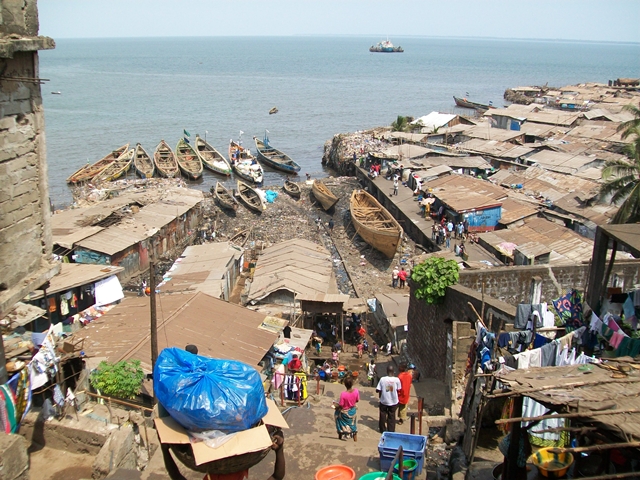
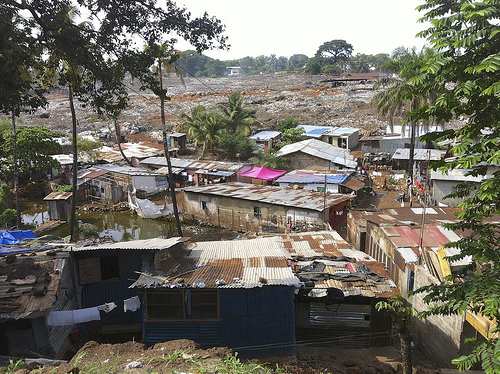


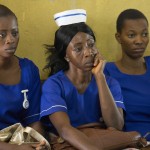

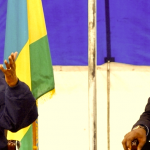
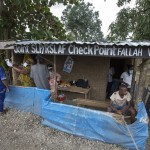
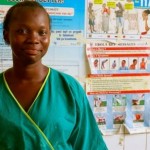


Comments